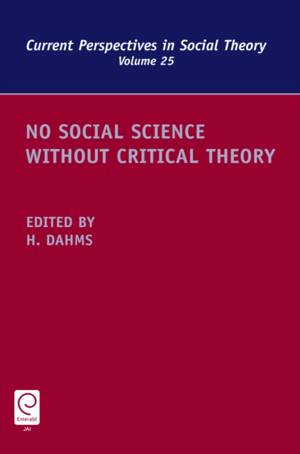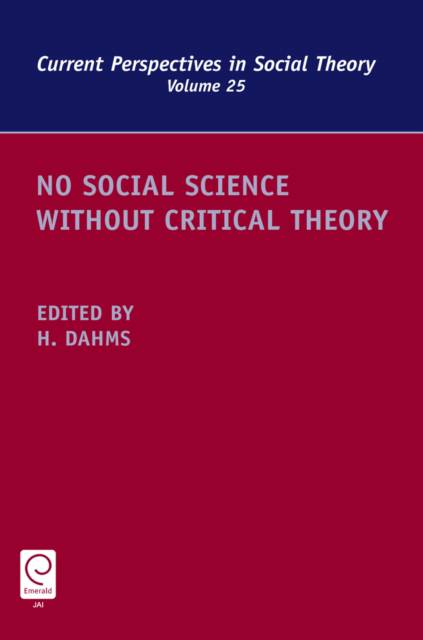
- Retrait gratuit dans votre magasin Club
- 7.000.000 titres dans notre catalogue
- Payer en toute sécurité
- Toujours un magasin près de chez vous
- Retrait gratuit dans votre magasin Club
- 7.000.000 titres dans notre catalogue
- Payer en toute sécurité
- Toujours un magasin près de chez vous
No Social Science Without Critical Theory
230,45 €
+ 460 points
Description
Since the linguistic turn in Frankfurt School critical theory during the 1970s, philosophical concerns have become increasingly important to its overall agenda, at the expense of concrete social-scientific inquiries. At the same time, each of the individual social sciences especially economics and psychology, but also political science and sociology have been moving further and further away from the challenge key representatives of the so-called first generation of Frankfurt School critical theorists (Adorno, Horkheimer, and Marcuse) identified as central to the promise and responsibility of social science: to illuminate those dimensions of modern societies that prevent the reconciliation of facts and norms. As professional disciplines, each individual social science, and even philosophy, is prone to ignoring both the actuality and the relevance for research of alienation and reification as the mediating processes that constitute the reference frames for critical theory. Consequently, mainstream social-scientific research tends to progress in the hypothetical: we study the social world as if alienation, reification, and more recent incarnations of those mediating processes had lost their shaping forcewhile, in the context of globalization, their manifestations are ever more apparent, and tangible. The chapters included in this volume of "Current Perspectives in Social Theory" highlight the problematic nature of mainstream perspectives, and the growing need to reaffirm how the specific kind of critique the early Frankfurt School theorists advocated is not less, but far more important today. Contributions examine the links between political geographies and globalization; Marxism and public sociology; anti-Semitic workers and Jewish stereotypes; governmental rationality and state power; restricted eros and contemporary politics; Marcuse and the psycho-politics of transformation; contemporary theory and consumer society; and the theory of C. Wright Mills. This book includes nine chapters from some of the most respected personalities in the field and a broad and diverse look at social science and critical theory.
Spécifications
Parties prenantes
- Editeur:
Contenu
- Nombre de pages :
- 414
- Langue:
- Anglais
- Collection :
- Tome:
- n° 25
Caractéristiques
- EAN:
- 9780762314836
- Date de parution :
- 16-06-08
- Format:
- Livre relié
- Format numérique:
- Genaaid
- Dimensions :
- 159 mm x 257 mm
- Poids :
- 730 g






